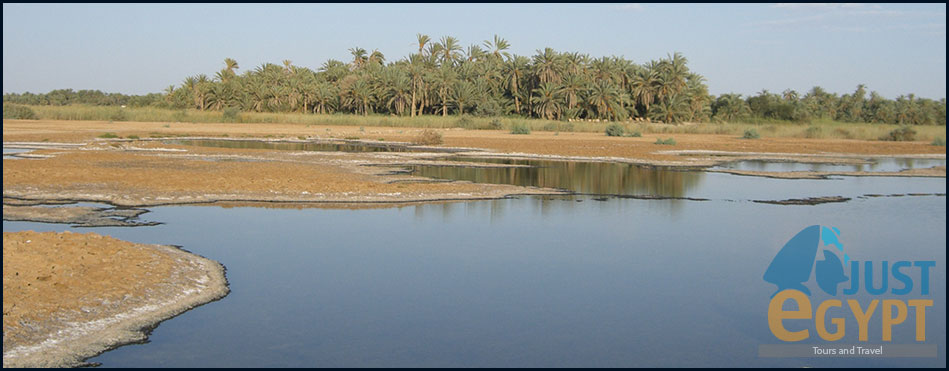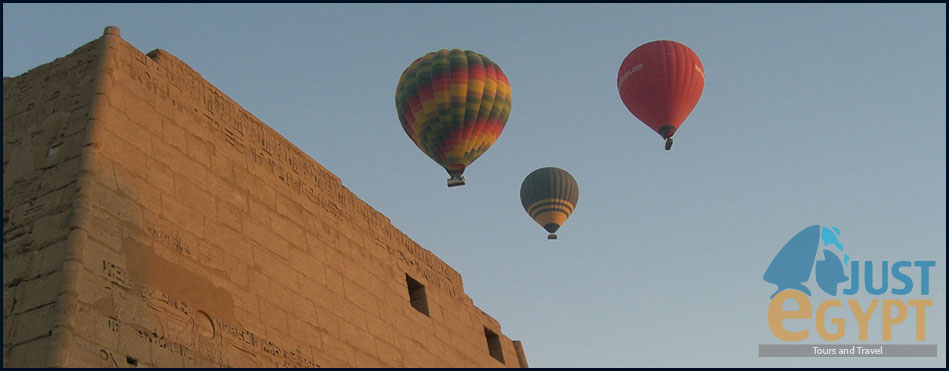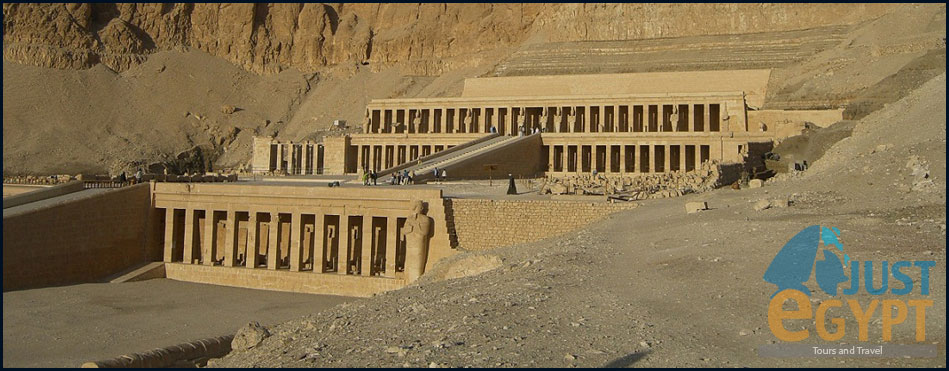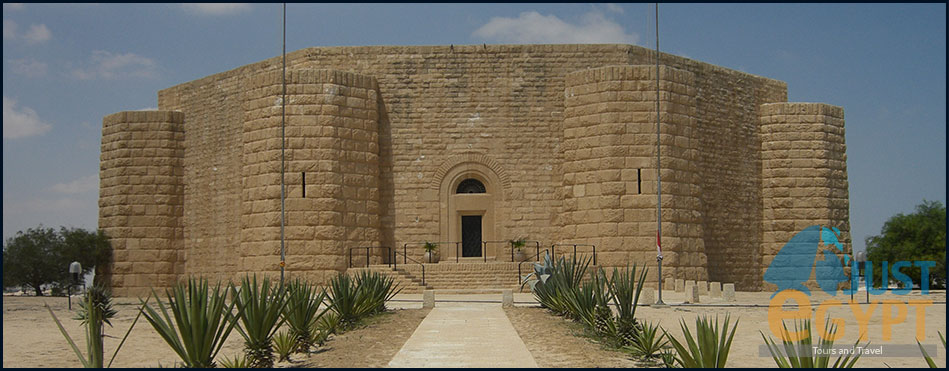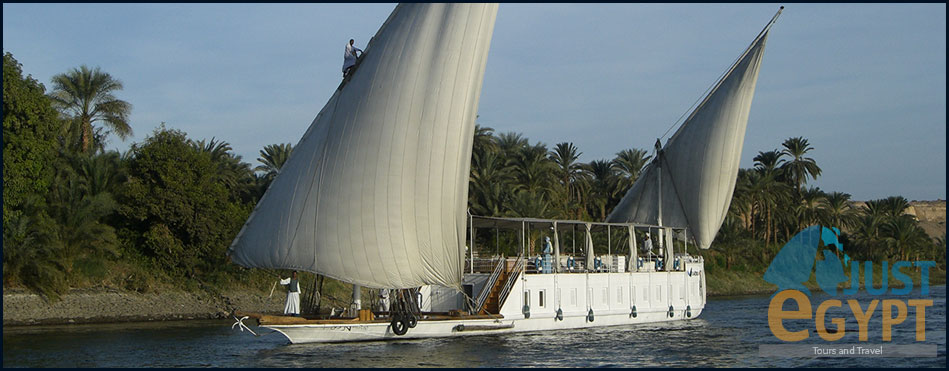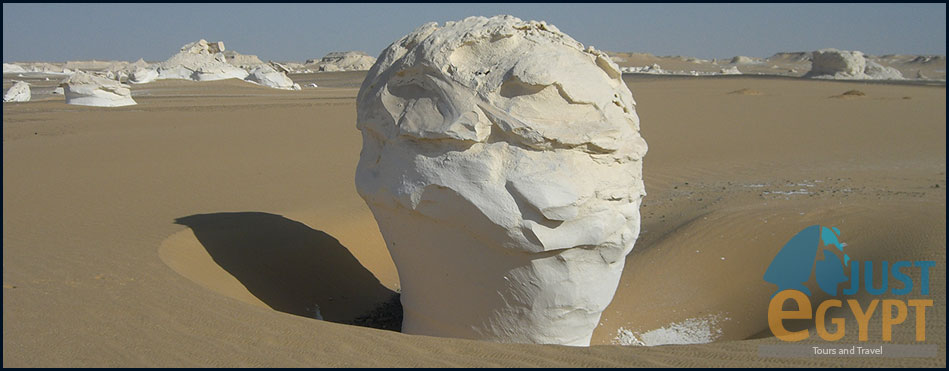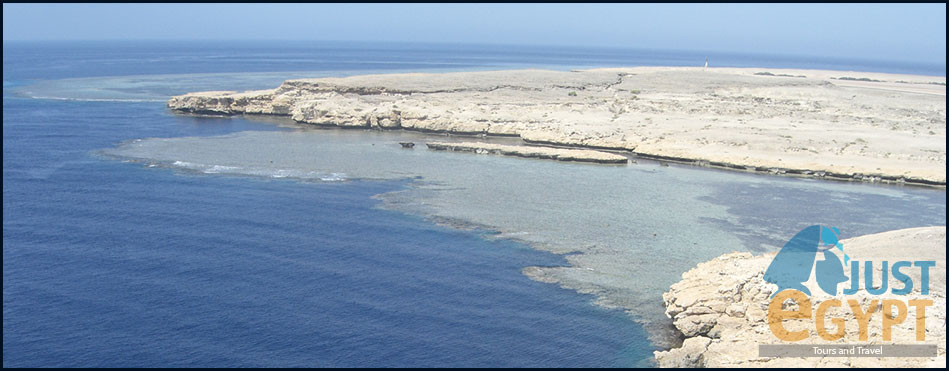Food
All over Egypt, and especially in Cairo, you will find a vast range of high-class restaurants serving international cuisine including French, Italian, Chinese, Japanese, Mexican, Indian and Lebanese. There are also branches of international chains such as TGI Fridays, Chilis or J.W. Steakhouse. Fruits, vegetables and seafood are all excellent. Egyptian food is generally similar to many other Middle Eastern and Mediterranean cuisines, including stuffed vine leaves, grilled meats, and numerous "dips" traditionally eaten with pitta-style bread. Rice with vegetables in tomato sauce, and pasta dishes baked in a similar way to lasagne, are both common. Specialties include stuffed or spit broiled pigeons, shish kebabs made of marinated chunks of lamb and spices, then grilled over hot charcoal and small ground lamb kebabs called kofta. Seafood is a good choice with prawns from the Red Sea, sea bass from the Mediterranean and a wonderful fish dish, tilapia, from the Nile. :: The national dish of Egypt may be considered to be Foul Mudhammas. Ful or Fava beans are cooked in olive oil and garlic, flavoured with lemon, cumin and parsley and often served with an egg for breakfast. Egyptian food is often flavoured with mint, dill, parsley, garlic and cumin. A nice way to sample different recipes is to have a mezze, or selection of little dishes washed down with the local Zibib or aniseed flavoured aperitif (the equivalent of the Greek Ouzo, or the French Pernod). Dishes might include Babaghanoug (baked mashed eggplant flavoured with Taheena - sesame seed paste), Falafel or Taameyya (small round patties made of ground ful beans, seasoned and deep fried), WaraqAnab (vine leaves stuffed with rice and meat), Bickley or Turshi (spicy mixed pickled vegetables), LebanZabadi (thick creamy yoghurt and very good for the digestion) and Mish, a mature cheese made into a paste and flavoured with spices. :: Desserts range from regional specialties such as honey-soaked pastries like Kunafa, which looks like shredded wheat, made with rose water, nuts and sugar, and Basbousa made from fine semolina and flavoured with almonds, lemon and vanilla to the famous and uniquely Egyptian "Om Ali", a baked dish of layered pastry cooked with milk, nuts, raisins and spices. Most visitors to Egypt will have at least one chance to try traditional local cuisine as part of their Nile cruise, when one night is usually themed as an Egyptian night including a buffet of local delicacies. :: Egypt has a wealth of fresh fruits such as mangoes, pomegranates, dates, figs, apricots, melons and citrus.
Drinks
Tap water should never be drunk in Egypt. We recommend that you use bottled water, ensuring that the seal has not been broken on the bottle. Use it for cleaning teeth and remember not to have ice in your drinks.
Non-Alcoholic
Traditional drinks abound, ranging from chilled carob juice or hot licorice infusion, to thick milky concoctions filled with nuts and spices ("sahleb"). Some of the tastiest for visitors to try would include "karkady" - a rich, sweet infusion of the dark red hibiscus flower, usually drunk cold but also sometimes served hot - and "limoon" - a fresh lemonade made from the small local yellow limes, served frothy, tangy and sweet.
Alcoholic
Alcohol is available in all hotels in Egypt, and most restaurants are licensed. Bars and other drinking establishments are commonplace, and are popular with many locals as well as foreigners. In addition to the usual range of international brands, visitors can try Egyptian-made wine and beer, both of which are pleasantly drinkable.
• Wine
- The "Chateau Grand Marquis" is Egypt's premium range of wines, made out of the best Egyptian grapes and produced in association with French experts. The range contains a crisp, light white, an aromatic rosé, and a rich red.
- The "Obélisque" range is made in Egypt but with imported Italian grapes. The range comes in a tannin-rich red (Rouge des Pharaons), a light rosé (Rosetta) and a fresh, dry white (Blanc d'Alexandrie).
- The "Gianaclis" range is made with grapes from Egyptian vineyards, and has a fruity red Cabernet Sauvignon (Omar Khayyam), a delicate rosé (Rubisd'Egypte), and a fresh white Pinot Blanc (Cru des Ptolemées).
• Beer
Beer is mainly lager-style - try asking for some of these:
- Stella Local (regular lager), Stella Export (stronger lager), Stella Premium (dark Belgian-style lager)
- Meister (regular lager), Meister Max (stronger lager)
- Sakara Gold (regular lager), Sakara Premium (stronger lager)
- Löwenbräu - the famous German beer, locally brewed under license
- Heineken
Holidays & Festivals
Ramadan, the Muslim holy month, lasts for 28 days each year with the dates moving forward compared to the western calendar by around 11 days per year. Nightlife blossoms during this period, despite it being a "dry" time for Egyptians, and special temporary entertainment tents spring up all around Cairo serving huge quantities of oriental food, aromatic water pipes or "Sheesha", and loud Arabic music in equal abundance from sunset till 4am. Tourists welcome!
Between March and May each year, depending on the Coptic Easter, a national holiday called "Sham El-Nessim" - "Smelling the Blossoms Day" - celebrates the fragrant blossoms that grace Egypt's many flowering trees at the beginning of spring. Families often spend the day with a picnic in a local green area - sometimes simply on grassy roadside verges - and traditionally enjoy a pickled fish dish called "fesikh". (Not recommended for the faint-hearted - fesikh is famously pungent!)
Most other festivals in Egypt are religious in nature and very localised, generally celebrating the birth or death of a neighbourhood saint. Most are not of great interest to tourists, being aimed at pilgrims rather than the casual observer.
Weather
Egypt has year-round sun, and almost no rain, except in Alexandria, which has a more Mediterranean climate than the rest of the country. Daytime temperatures range from pleasantly warm in the winter to very hot in the summer. Northerly cities such as Cairo and Alexandria are generally about 5?C cooler than southerly areas such as Aswan and Abu Simbel. Nights in the desert can be extremely cold.
Local average temperatures range as follows for the year (°C):
Time differences
Time zone is GMT + 2 hours in winter; clocks move forward 1 hour in summer.
Documentation
Travellers to Egypt must carry a valid passport, with validity no less than six months beyond the period of their stay. The passport must contain at least two blank pages.
Travellers should refer to their closest Egyptian Embassy or consulate to check on exact visa requirements at their time of travel. However, it is worth noting that for most North America and Western European nationalities, tourist visa may be purchased upon arrival at any Egyptian international airport. Albarari can arrange for pre-purchase of such visa stamps upon request.
Security
You should keep all travel documents, travellerscheques, cash, passports and other valuables in your hotel or cruise boats 'safety deposit boxes. Although street crime is at a minimum, as in any other country, travellers are encouraged to use common sense and not wear ostentatious jewellery. It is also advisable to carry only small amounts of money.
In general you will find people hospitable and friendly. Personal security in Egypt is rarely an issue at all, and Cairo is considered one of the safest cities in the world. Visitors can comfortably walk at night along main city streets. However, it is recommended that a tighter hold on purses and wallets is kept when wandering round bazaars; and it is advisable for women in particular to dress more conservatively out of respect for local customs when in more traditional areas or small towns.
Transport
In Egypt, not all travel hitches are man-made; desert sandstorms (including the Khamasin in March to May), which can play havoc with the local air schedules and tour itineraries, as well as the water level of the Nile, are two natural phenomenon. In this latter connection, some cruise vessels cannot pass through the Esna Lock for a period, and cruise / sightseeing schedules have to be amended
When travelling in Egypt, be prepared for early starts, often designed to avoid travelling during the hotter hours of the day, and to enjoy the monuments in the most favourable conditions. Inevitably some degree of mental and physical fatigue can result at times. The length of visits to Abu Simbel largely depends on flight punctuality (and delays may curtail sightseeing).
Domestic Flights
Egypt Air is the primary airline operating. It has a modern fleet of Boeing and Airbus aircraft. Overbooking by the airline does occur and for this reason, punctual check-in is important.
At busy times of year, particularly local festivals, holidays and pilgrimage to Mecca, domestic flights are subject to change - often at short notice. Our local office works very closely with Egypt Air to ensure minimum disruption to itineraries and every effort will be made to retain the original itinerary content. Changes can occur even after confirmation.
It is also prudent to take the first flights of the day whenever possible when flying to Upper Egypt from Cairo, although this will necessitate an early departure from the hotel.
There are however advantages to an early start in the day:
If you miss the first flight for any reason, for example because of re-scheduling, delays to incoming flights, or overbooking, on most days there is a later flight, whereas if you take an afternoon flight, you may not have alternative means of reaching your destination.
The early morning is a cooler time in which to travel.
Esna Lock
At peak times, congestion caused by the number of vessels waiting to pass through the lock at Esna, can mean delays which may affect the timing, and on rare occasions the duration of cruising and sightseeing programs. We will endeavour to advise you of any changes prior to your departure.
Nile Cruising
Cruising the Nile is not like conventional ocean cruising, and the actual distance covered on cruises between Aswan and Luxor is a mere 150 miles. Your cruise boat provides, primarily, a comfortable base from which to explore the famous sites. Nor is cruising for late risers! At peak times, or during the hot summer months, you may need to get up with the dawn to visit the monuments. Often a morning's sightseeing is completed by 10am.
A lack of proper docking facilities en route may require disembarkation on planks over rocks and up steep inclines. Sightseeing can also mean some strenuous walking across sands or walls. Sometimes boats dock against one another, several abreast, and so a view of the Nile cannot always be guaranteed. Our boats endeavour, wherever possible, to secure private docking facilities.
Taxis
Taxis are a relatively cheap method of travel, but you should ensure you take a licensed taxi. Only use the metered taxis white or yellow cabs but not the black and white which aren’t metered. Drivers normally expect a 10% tip.
Money Matters
The unit of currency is The Egyptian Pound (£E), which is divided into 100 piasters. Pounds are issued in notes of 1, 5, 10, 20, 50 and 100. Coins are issued in denominations of 5, 10, 20, 25 and 50 piasters. It is useful to have local currency for tipping or for shopping in smaller souks or local restaurants, and it is easy to change money at any hotel bank. US dollars are widely accepted in major tourist establishments, hotels, and souvenir shops.
There are no restrictions on the amount of foreign currency or travellerscheques, which may be brought into the country. However, passengers entering Egypt with Egyptian currency exceeding 1000 USD must declare this on arrival. We suggest that you only use travellerscheques and change small amounts of money as you go to avoid having large amounts of Egyptian currency left over at the end of your trip.
Currency Exchange
There is one rate of exchange controlled by the Government, established daily and available from all banks. Currency may be exchanged through banks or currency exchange houses which can be found in most major cities, and are usually open from 10am till 9pm every day of the week. All major hotels will exchange major foreign currencies at the same rate as banks. You will be issued a receipt which must be retained to permit currency to be re-exchanged when leaving the country and as evidence that exchange of currency has been through official channels. Egyptian pounds may be converted back to foreign currency at the airport if you have kept all documentation relating to any currency exchange transactions, such as hotel and bar bills, shopping and foreign exchange receipts.
Banking hours
Are normally 9am till 2pm, Sunday through Thursday, closed on Fridays and Saturdays. Cairo Airport and the majority of major hotels in Cairo offer 24-hrs banking services. Please remember to have your passport on you as this will be required to effect any transaction.
Major credit cards
Such as MasterCard and Visa are widely accepted at major restaurants, almost all hotels, and many shops. American Express is less common but is still normally accepted at major hotels. Diners Club is hardly known in Egypt.
DEPARTURE TAX
The airport departure tax is currently included in your ticket.
TIPPING
Tipping or "bakseesh" is a subject that even the most experienced traveller finds difficult. It is a very personal and individual matter and the decision of how much to give is strictly yours.
Hotel service charges and taxes are usually included in your holiday cost together with all portage of 2 pieces of baggage per person and service in bars and restaurants.
Tips to your drivers, guides, staff on board Nile cruise vessels and to your Egyptologist are usually not included in your tour price. We hope that the following guidelines will be helpful to you:
Drivers: You will generally have the same driver throughout your initial stay in Cairo. A tip is usually given on your last day in Cairo of approximately U$3 per day per person. For drivers in Upper Egypt a tip of about U$2 per day per person is appropriate.
Staff on board river vessels: Approximately U$5 per day per person is suggested as a total tip to be divided amongst all the staff on Nile Cruise vessels.
Egyptologist/Guide: Approximately U$7-10 per day per person is suggested.
Clothing
As in all foreign countries with customs different to your own, it is polite to adhere to and show respect for local customs, particularly in religious places and to be discreet when a service is in progress. Women should not wear strappy dresses, miniskirts, shorts, or low necked dresses in public places (e.g. Offices, markets and shopping areas). Modest dress is particularly important when visiting mosques, synagogues and churches. Ladies should wear loose-fitting non see-through clothes and shoulders should be covered.
When visiting mosques, ideally, ankle-length skirts or loose trousers should be worn. Men should wear short or long sleeved shirts and long trousers. Shoes are not permitted inside, therefore a thick pair of socks is useful for protection from sun baked floors. Cloth shoe coverings are often available for which a small tip is payable. Shorts and beachwear should be worn only at the beach or hotel pool area.
Egypt's climate is dry all year round, so you won't require rainwear unless you are going to Alexandria between December and February. In winter you will need light woollen clothes with sweaters, although a light sweater may be useful all year-round in the evenings throughout the country. Cairo can sometimes be surprisingly cool during the mid-winter months so layers of clothing are recommended. From December to February travellers to the interior of the Sinai can experience extreme cold, so thick winter clothing is essential. In spring and autumn a combination of both is advisable for the warm days and cool nights, so pack accordingly. From May to November, light cotton clothes are recommended.
What to pack
In addition to your clothing, following the guidelines above, we recommend to pack the following:
Very good, comfortable walking shoes: You will be doing a considerable amount of walking, and shoes should not be just comfortable, but comfortable to walk long distances.
Hats and other covering: Large brimmed hats that provide not only a head covering but also a certain amount of shade will come in very handy in the hot Egyptian sun during summer. In addition, scarves or other apparel should be taken along to cover shoulders and arms, and again, or not only important for visiting religious sites, but also to keep the sun off during treks. In very hot weather, a cloth hat or scarf that can be soaked will also help keep your head cool.
Sun block: While sun blocks may be purchased in Egypt, you might prefer to bring your own favourite brand.
If you wear prescription glasses, bring an extra pair or at least a copy of the prescription. If you wear contact lenses you may wish to bring a pair of glasses along, as the fine sand dust in the air in Egypt may irritate your lenses.
Also useful are cool wipes and moisturizing creams to protect your face from the hot, dry climate.
Medication: Of course, bring your prescription medicine. There is no problem with bringing prescription medication into Egypt. It is also more convenient to bring your favourite non-prescription medications along.
Camera: Refer to the section on Photography
Flashlight: To view artworks inside dimly lit tombs and temples. Pack a few extra batteries, too.
Power Adapters: Power Adapters come in two different varieties. Some electronic equipment have switches to allow you to change the power input type. For these, a simple wall adapter is all that is required. However, other electronic devices do not have such switches and in this case, you not only need a wall adapter, but also a power converter. Egypt uses 220 volt and plugs are two prong rounded.
An Extra Bag: A bag, preferably soft, which can be crunched up and carried into Egypt in another bag will be handy for most people. The bag will then be used to carry back souvenirs.
Beware: Egypt Air has been strictly enforcing excess baggage charges. To avoid these charges, you should travel on domestic flights with less than 20 kilos of checked baggage. You can deposit some of your excess luggage at the hotel for your second stay. Our representative will be happy to organise that for you.
Photography
Camera
Photography or camera fees are applicable at most sights and museums; your guide can give you details of the latest charges. We recommend that you bring all your own equipment and plenty of film with you into the country.
We would recommend that high speed films (ISO 400) for night time photography such as the Sound and Light Shows, temple interiors and tombs where you are not allowed to use a flash. For outdoor light conditions, lower speeds are more suitable. The best time for photography is either early morning or late afternoon. At midday there is an enormous amount of reflective light so a light meter and filter is useful as well as a telephoto lens, minimum size of 120mm is recommended. Remember to take a spare set of batteries for your camera and a dust cover or polythene bag to help protect your camera and lenses from Egypt's fine dust. A flash is useful, although you will find restrictions in certain places. If you are taking photographs of local people, always ask their permission beforehand. Your guide can assist you in this.
Photographic Restrictions
All video equipment must be registered with customs upon arrival at Cairo International Airport. There are a variety of rules governing photography of different sites and monuments in Egypt. At all open, outdoor historic areas, photography is unrestricted, such as outside the Pyramids and the temples at Luxor and Aswan. In some areas a ticket must be purchased to use cameras and video equipment (E£10-100 approx), and tripods and flashes are seldom allowed in those museums that do permit photography. At some museums and tombs you will be asked to leave your equipment in the care of the door custodian - your guide will advise you. These restrictions are truly in the interest of preservation of these fragile sites, and we request your co-operation. Postcards and slides are available at most sites. Signs are usually posted in restricted areas but if in doubt, ask your guide rather than risk confiscation of your film.
You are strongly advised not to photograph airports, military installations, strategic sites, docks, dams, bridges, police or soldiers.
Electricity
Egypt electrical current is 220V, and sockets take the standard continental European dual round-pronged plug. If you do not have the correct adaptor with you, your hotel Housekeeping department may have one available upon request.
Shoping for souvenirs
Shopping in Egypt can be relaxed and leisurely, at high-class souvenir stores and hotel outlets, or part of an authentic - but sometimes hectic! - Middle Eastern experience at the local bazaars and souks. Particularly in the local bazaars, a healthy amount of bargaining is expected - which means that the "best", or "correct" price is simply the one that both parties agree on during that sale. Enjoy the game!
Some of the loveliest and best value souvenirs available from Egypt include:
• Gold and silver jewellery, or "Cartouches" inscribed with your name in hieroglyphics.
• Wooden boxes inlaid with mother-of-pearl.
• Hand-engraved brass and copper-work.
• Carved alabaster from the quarries of Upper Egypt.
• Hand-sewn appliqué work - with Arabic, Pharaonic, or "naïf" folk designs.
• Cotton "Galabeyyas" - traditional robes and kaftans, often beautifully embroidered.
• Papyrus - still made by traditional methods, and hand-painted with intricate designs.
Language
The national language in Egypt is Arabic. However, tourists will rarely find a problem communicating as English is widely spoken in hotels and shops, with French a close second, and many staff in tourist areas also speaking German or Italian.
Language Trivia
Arabic is written from right to left, and the language itself has many different spoken dialects, some so far apart from each other that native Arabic speakers from different countries may actually have difficulty understanding each other. The Arabic used in Egypt is the most widely understood dialect, due in large part to the fact that most of the Arabic movies are produced in Egypt. However, written or "classical" Arabic is the same across the Arab world, and is basically an older, purer form of the language. Modern-day spoken Arabic in Egypt is vastly different in both vocabulary and grammar from the written classical Arabic that is used in newspapers, magazines and books - to the extent that if the same difference were expressed in English, it would be as if all printed material were written in Chaucerian! This enormous variety of vocabulary in daily use in the Arab world is part of the reason that Arabic is considered such an expressive language. Native Arabic speakers also tend to have a great appreciation for the beauty of their own language, and poetry, or songs using poetic expressions, are greatly valued.
Useful Vocabulary
Disclaimer
All the information contained here is intended for guidance only and is believed to be correct at the time of inclusion. As circumstances may change at any time you are strongly recommended to check with us, or the appropriate authority prior to travel for up-to-date information, especially your passports/visa and health requirements.





